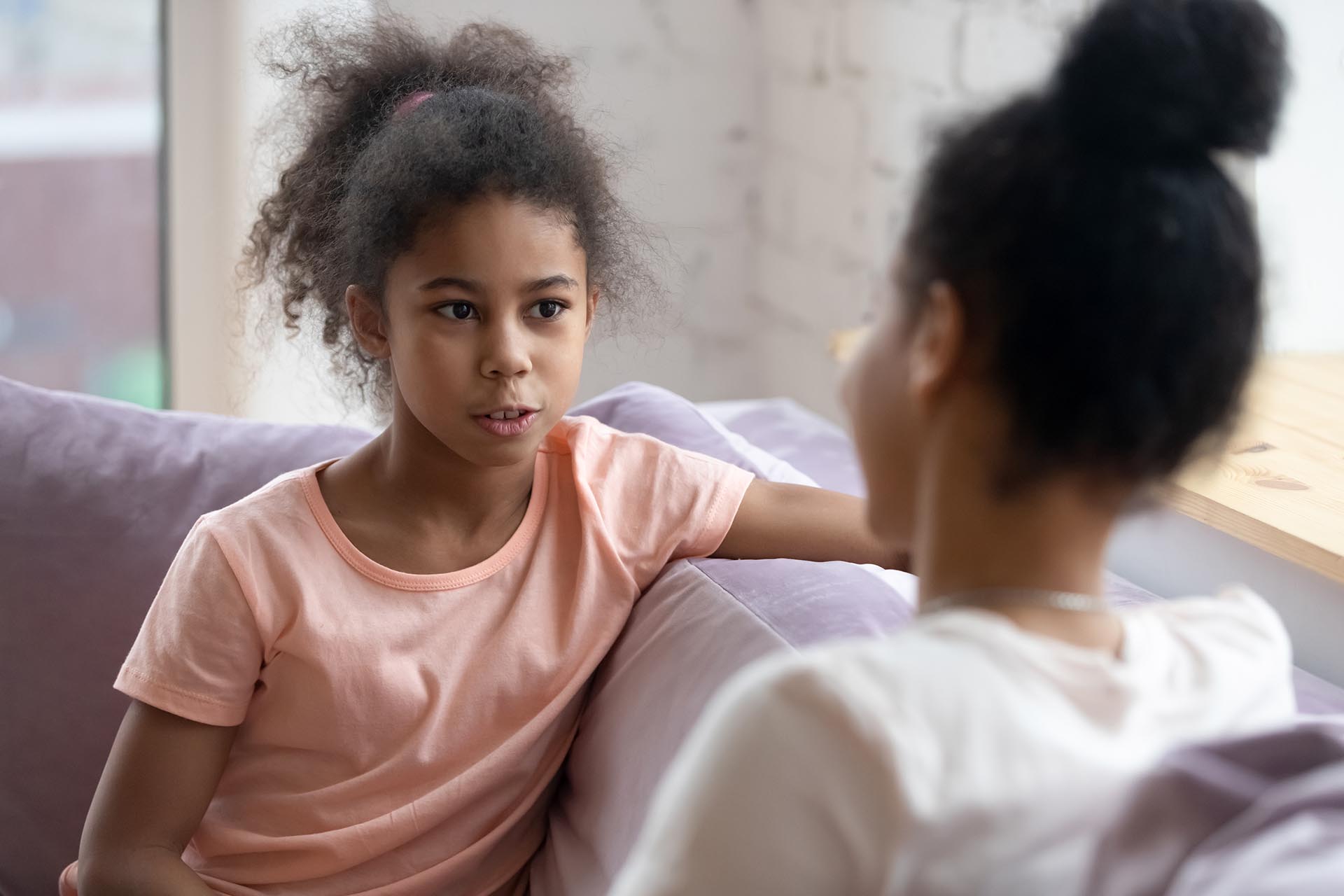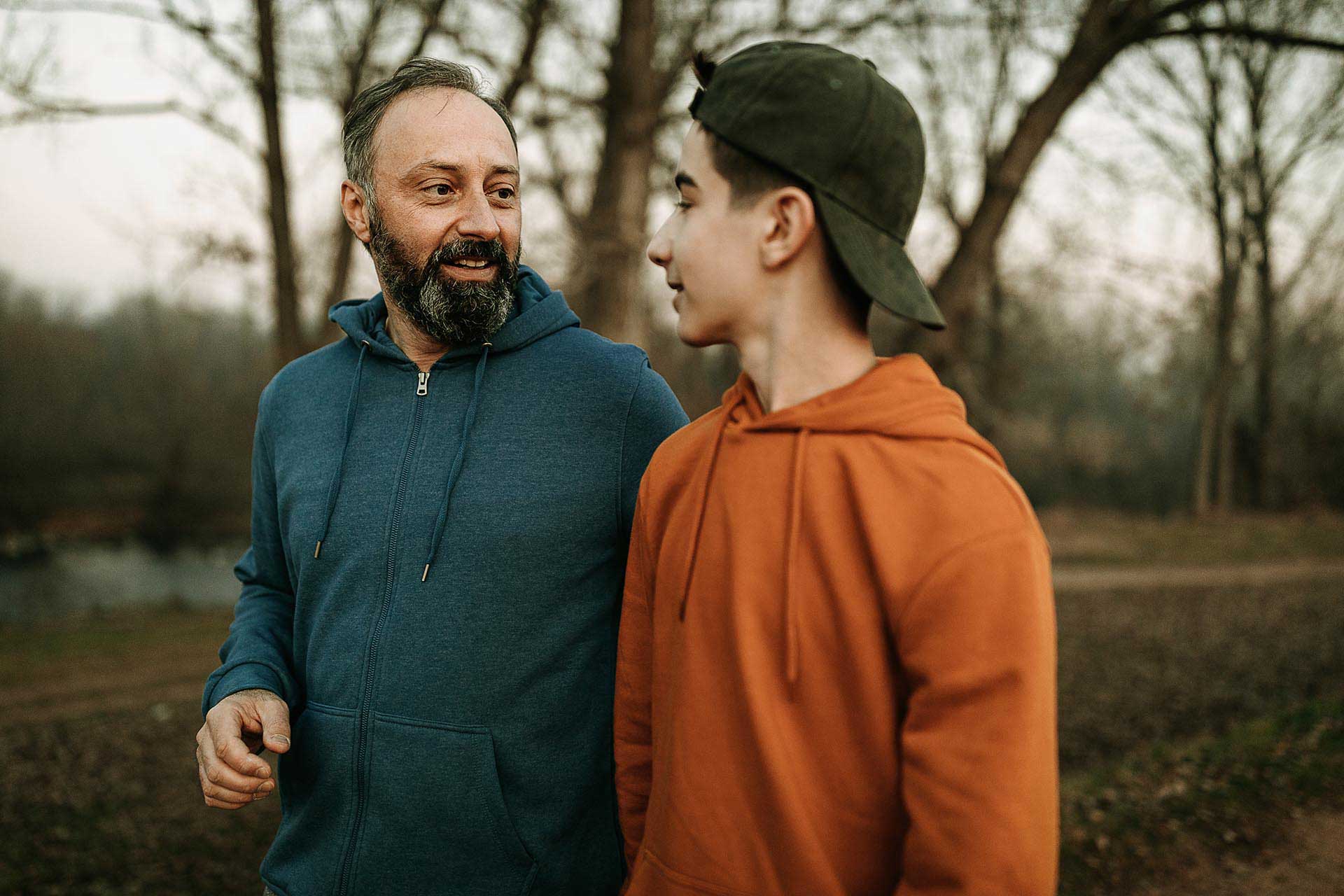How to support your LGBTQ+ child or teen
Every child deserves love and care. Sometimes, it can feel like a huge task as a parent to know how to support and nurture your young person in all the ways they need. Young LGBTQ+ people particularly face unique challenges that some parents might not always know how to guide through – especially with today’s terminology changing so fast (you can read our article which breaks down the LGBTQ+ acronym here). But there are a number of simple and easy steps we can take to become both allies and centres of support for our children and teens who are gay, transgender, or anything else.
Show them love and support
It seems like a no-brainer, but it really is the most important point. Studies from The Trevor Project found LGBTQ+ youth who had at least one accepting adult in their life were 40 per cent less likely to report a suicide attempt. Tell your child you love them, no matter who they are – and not in spite of who they are. Tell them you’ll support their journey and always be there to look out for them. If they’ve come out to you as transgender or gender non-conforming, make an effort to always use their chosen name or pronouns and correct yourself if you mess up (this includes even when they’re not around).
Watch for negative thoughts
You might have moments when you think to yourself, ‘It’s just a phase,’ or, ‘Others will judge me,’ or, ‘Did I do something wrong?’ And that’s okay. We’re all only human. But it’s important in those moments to course-correct your thoughts, and not let them slip out in front of your child. Remind yourself that these thoughts aren’t right or fair for your child: it’s not just a phase, no one will judge you, and you did nothing wrong – just as there’s nothing wrong with your child!
Ask questions and listen, listen, listen
Give your child the time and space to open up to you. Check in often. Ask them questions – about their identity or orientation and what it means to them; the terms can be defined differently for different individuals, and some of the nuances might seem small but they can be a big deal for people who identify a certain way. Ask about their views on the world and their thoughts on the LGBTQ+ experience today. Ask them about their favourite queer idols or stars and what they like about them. Talk to them about current issues for the community. And listen and take on board what they have to say.
You might say: ‘I really love that you trust me enough to open up to me about who you are. You know I’ll always love and support you no matter what. It doesn’t matter who you love or how you identify, you’ll always be loved and supported in this house. And I’m curious, what does it mean to be queer/gay/trans to you? Can you tell me more?’
Be proactive
Little things can go a long way in showing that you’re a parent who actively participates in your child’s life. Do a bit of research to find out what all the latest LGBTQ+ terms are and what they mean (we have a helpful post on this here). Read the news on sexuality and gender diversity issues. Look into queer events that you can go to together to show that you care. They’ll pick up on your demonstration of support.
Show them representation
Thankfully, LGBTQ+ representation has come a long way – especially in the last few years. There are more movies, television shows, books and podcasts than ever that focus on queer characters and issues. Queer musicians are more common than ever. Watching, reading or listening to these with your child will help to show them that they’re normal and there are many others like them. It also helps to show the breadth of LGBTQ+ experience – that queer people aren’t a monolith and there’s a lot of diversity even just within labels like ‘gay’ or ‘trans’.
You might say:
‘I enjoyed watching that film with you. You know, when I was younger, we had far fewer representations of gay/trans characters on screen. Was there anything in that film that spoke to your experience? What did you think of it generally? I’m curious to know your thoughts.’
Watch out for bullying
According to the Human Right’s Commission, more than 70 per cent of gay, lesbian, bisexual, transgender and intersex people have been attacked, bullied or harassed. School yards can be particularly vicious places for young queer people. Watch out for signs that your child is being bullied, including withdrawing from social activities and other activities they normally enjoy, not wanting to go to school, and behaving more withdrawn, mopey or irritable than normal. They also might make more negative comments about themselves.
If you suspect your child is being bullied, check in with them. It’s okay to ask what’s going on in their lives and in the schoolground. From there, talk to your child’s school. They should have anti-bullying policies in place and steps they can take – and hopefully, they will have specific support services for LGBTQ+ kids.
Keep an eye out for signs of poor mental health
A disproportionate number of LGBTQ+ people experience issues with mental health compared to heterosexual and/or cisgender general populations – including much higher suicide rates. Your child or teen might also be showing the signs listed in the above point if they’re suffering from common mental health disorders, such as anxiety or depression. If your child has become withdrawn, speak to your GP and do some research to find a queer-friendly psychologist or counsellor for them. If seeing a counsellor doesn’t work, you might need to talk to your GP about other options such as medication.
Connect them with resources and events
Both you and your child need to remember that you’re not alone in this! Far from it, for many people, one of the best things about being a queer person is the community it opens you up to. Minus18 is a fantastic resource that young people can get involved with. Not only do they provide education and advocacy, but they also run events for queer children and teens to help them make friends with one another. You can also show your support by going to events together, such as Midsumma Festival and their Pride March, the Melbourne Queer Film Festival and all-ages drag shows.
Queer events you might like to take your child to (including specific under 18s events) could include
- Midsumma festival (such as their their pride march)
- Melbourne Queer Film Festival
- Minus 18 events (such as their Queer Formal)
- Melbourne Fringe Festival, Melbourne International Comedy Festival and many more festivals have family queer nights and/or performers
Support their self-expression
All adolescents care about how the look – fitting in with their ‘tribe’. This is no exception – even particularly true – for queer tweens and teens. Allowing them to dress in a way that expresses their gender or sexuality can affirm and foster pride in their identity, while helping them feel supported by you. Of course, sadly, there may need to be conversations about staying safe (as visibly queer people can be particular targets for attacks), but you can negotiate situations and places where they can go ‘all out’, so to speak.
Reach out to other families and support services
Once more – you’re not alone! Not sure what to do or say? Reach out to other parents. Ask your child’s school what they’re doing to support their queer students and their parents. See if you can set up a parents’ group. Meet other parents at events such as Pride marches. Look out for Facebook groups. One particularly great resource is The Rainbow Network, which is a website specifically for families of LGBTQ+ children. They also run events, which can be an excellent for meeting similar parents and carers.
If they’re not out to you
First and foremost, try to hold back on assumptions. Until they tell you, you can’t know. Some people just behave and present themselves in ways that don’t uphold the stereotypes of their gender. You might be tempted to come out and ask, but it’s better to wait until they feel the time is right to tell you.
In the meantime, there are ways you can help foster an environment where they’ll feel safe to come out to you if the time does come. Speak positively about representations of LGBTQ+ people on screen. Make it no big deal to watch a film with a trans character or a gay love story. Challenge people around you if they speak negatively about queer people or issues in your presence – especially if your child is around. And finally, let your child know that you’ll love and support them no matter (and not in spite of) who they are or who they love.
Further reading
- ‘ABC podcast series tells LGBTQIA+ stories of coming out – and staying in’
- QLife: anonymous and free LGBT+ peer support
- Victorian Pride Centre: a range of LGBT+ organisations and businesses who support the LGBTQIA+ community)
- Rainbow Door: free LGBT+ helpline for info, support and referral to all LGBT+ Victorians, their friends and family
- check out our resources for LGBT+ for Secondary students and older here










